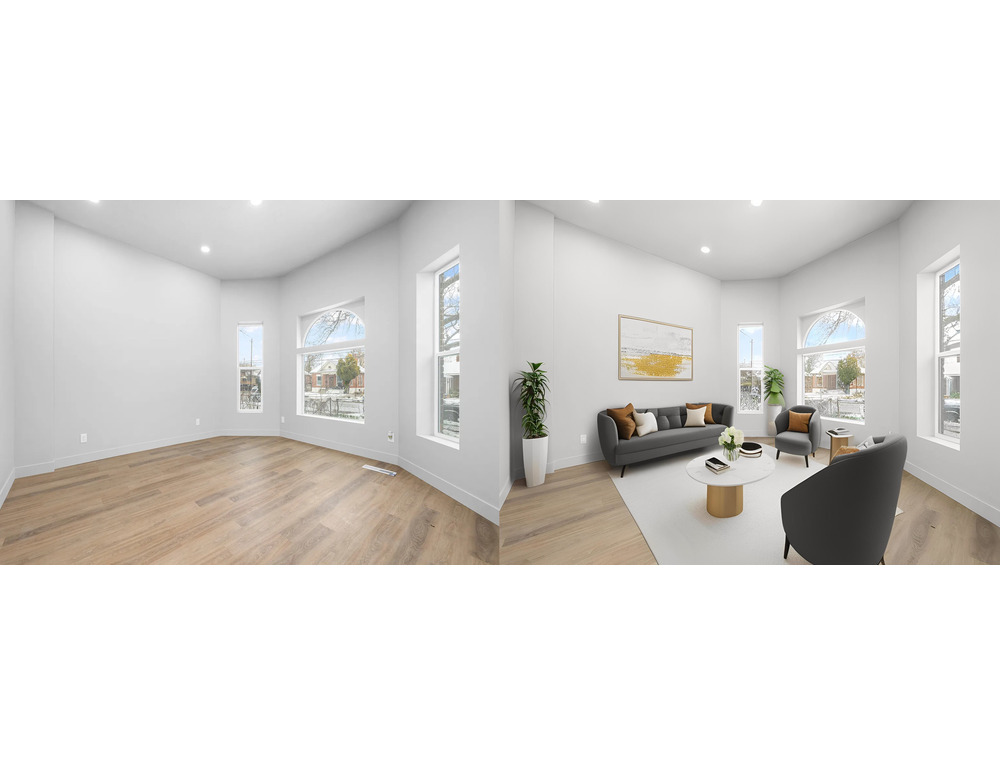
In a city synonymous with tech innovation and a forward-thinking ethos, it’s no surprise that Seattle’s real estate industry has been quick to adopt Artificial Intelligence (AI). Starting with platforms like ChatGPT, which brought a transformative approach to creating listing descriptions, AI’s reach has expanded to include various aspects of real estate. From automated customer management systems to intricate data analytics for predicting market trends, AI is becoming integral to the industry. Yet, its most recent leap in the form of virtual staging promises to change the game once again.
The AI ripple effect
Since the advent of AI tools like ChatGPT, real estate agents in the Emerald City have harnessed the power of this technology in a myriad of ways. Automated chatbots are engaging potential clients on websites, AI algorithms are helping identify prime properties based on multiple factors, and machine learning systems are even being used for risk assessment and contract management. All these are strides toward a smarter, more efficient future in real estate transactions.
From physical staging to virtual
The digital turn has been especially noticeable in home staging—a critical part of the property-selling process. With the real-world limitations imposed by the COVID-19 pandemic, virtual staging has increasingly edged out its physical counterpart. Though the traditional form of staging has its merits, it often involves a considerable investment of time and resources. Virtual staging has been a game-changer, offering an efficient, cost-effective solution that can be even more impactful in creating a vision for potential buyers.
A new paradigm: Virtual Staging AI
The Harvard Innovation Lab has introduced the next evolutionary—and perhaps revolutionary—step in this domain: Virtual Staging AI. With a staggering turnaround time of just 30 seconds, this new tool promises to redefine how real estate agents in Seattle approach virtual staging.
The procedure couldn’t be simpler. Agents upload a photo of the room they want to stage, select the type of room and style of furniture, and within half a minute, a perfectly staged image is ready for showcasing. This approach not only significantly reduces the time involved but also cuts costs, with some plans offering a cost of less than a dollar per image.
One of the most appealing aspects of Virtual Staging AI is its flexibility. Don’t like how the initial staging turned out? You can quickly switch styles or rooms without any additional expense. This level of adaptability is particularly valuable in a dynamic market like Seattle, where property types range from modern downtown condos to classic craftsman homes.
Moreover, agents can try the Virtual Staging AI tool for free, receiving a watermarked image that lets them evaluate the utility of the service without any financial commitment.
The future is now
In the ever-evolving landscape of real estate, those who adapt will thrive. Virtual Staging AI is not just another step towards a more technologically advanced industry; it’s a leap. By offering unparalleled speed, affordability, and flexibility, this new tool from the Harvard Innovation Lab is setting a new standard for virtual staging, and the Seattle real estate market would do well to take note.
